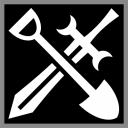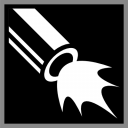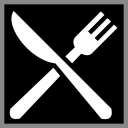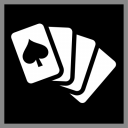This is an old revision of the document!
Skills Guide
Skills shape a player character's actions and knowledge about the world around them, and how they interact with it. There are six major areas of skill for a character to dabble in, and thirty five individual skills.
How Skill Levels Work
Skills are measured on a rank and point scale ranging from Unskilled (0 Points), all the way to Master (16 Points). This represents a character's level of competence with the skill. In each skill level will be what your character is expected to know and do. This is NOT an RPG stat system, this is simply a guideline to provide clarity for actual adeptness.
The skill rankings are:
- Unskilled (0/16) - Your character isn't expected to know anything about the area. Generally, skills of this level are not mentioned in the character's biography.
- Sitting in a car and turning the ignition on.
- Driving a car slowly around an empty parking lot or local street, with supervision.
- Beginner (1/16) - Your character is familiar with the simplest concepts and actions or procedures, having observed them in passing or read a little about them in their spare time, and knows enough about the skill for the absolute minimum level of responsibility or pressure.
- Earning a driver's license.
- Commuting to work in a car.
On the fly, most characters can be expected to be a Unskilled or a Beginner in a skill area. Generally, the higher skill levels described below are more likely to be written onto a character sheet.
- Basic (2/16) - Your character knows everything the person next to them can be expected to know about the skill, having likely undergone a course on the subject as a part of education, or their field of expertise. This represents enough to use the skill competently in everyday circumstances.
- Avoiding road hazards.
- Parallel parking, and other fine control in cars.
- Obeying and bending road rules.
- Intermediate (4/16) - Your character has gone beyond a hobbyist or average user, and is taking their skill to a more professional level, viable in itself. Their knowledge on the topic starts to incorporate other relevant fields and secondary knowledge.
- Taking defensive driving courses.
- Getting to know the car and the road in more detail.
- Learning to drift and drive with agility.
- Advanced (7/16) - With further research, study, and hands-on experience, your character is getting into further concepts in their field. Backed up by rigorous practice, skills at this level are expected to deliver consistently, given the risks involved.
- Doing a car chase on an empty highway.
- Shaking a tail by playing hide-and-seek or cat-and-mouse.
- Performing drifting, handbrake turns, bootlegger turns, or other moves in your car.
- Expert (11/16) - Your character has enough practice, experience, and to be the first person called upon when a relevant task comes to mind. You are recognised by other practitioners of the skill at a glance. At this level, the risks are greater, and mistakes can be grave.
- Pursuing a car on an occupied highway.
- Drifting in a semi-trailer.
- Coordinating an awesome looking vehicle stunt safely.
- Master (16/16) - Your character has a broad and deep range of knowledge within the subject through years of rigorous practice and education, as well as a wealth of practical experience. They are able to ply their skills in any accentuating circumstance. Various accolades or external recognition for their skill may be present too, and they are expected to be the ideal teacher or practitioner if called upon. The risks for failure are immense, but successful feats seem effortless to onlookers.
- Firing a gun out of a window while you drift through a snowstorm in your car, and steering with your knees!
See the Character Template to see how skill level descriptors are distributed on a character. Starting characters usually have 4 to 7 skill areas, with the following skill levels available for distribution:
- Up to 1 Skill may be assigned as Expert
- Up to 2 Skills may be assigned as Advanced
- Up to 3 Skills may be assigned as Intermediate
- Up to 4 Skills may be assigned as Basic
=== Skill Area [Skill] === >Describe your character's skill here, and their level of competence within the square brackets. Competence levels include Beginner, Basic, Intermediate, Advanced, Expert, and Master. >A skill area listing is not necessary for representing daily tasks at Beginner level. For example, the Vehicles skill doesn't need to be added to your character's biography if they will only use it to commute to work. >>If they get involved in a car chase though, a GM using these guidelines is unlikely to rule in the character's favour over someone with the Vehicles skill.
Advancement
Characters may improve or modify their existing skills as a result of roleplaying, or pick up and learn new ones with education or experience.
Skills by Area
The following is a list of skills, broken down by major areas in Wandering Star.
| Skill Icons by Lorc, available freely from OpenGameArt.org |
Combat
The following skills deal with making things hurt, one way or another.
Archaic Weapons
Smacking someone upside the head with a billy club, performing a clean diagonal cut on an incoming robot, throwing an outline of knives at someone to pin them to the wall. The Archaic Weapons skill is for anyone interested in stabbing, bashing, and cutting their way through problems, getting medieval, and using shields effectively. This skill also controls the use of muscle-powered ranged weaponry like bows, crossbows, and slings. This skill can also be applied to thrown weapons like darts, ninja stars, javelins, big rocks, cars, hunks of concrete, or people.
- Unskilled: Hits themself in the groin with nunchucks regularly, throws rocks way off course, doesn't play with foam swords, doesn't play baseball.
- Beginner: Handy with a kitchen knife or billy club, plays darts at the pub, fires slingshots at bottles, plays with foam swords at the park, fair batting average.
- Basic: Can swing an axe or a club well enough, regular winner at darts, familiar with a bow or a crossbow at close range, takes foam swords too seriously and learns how to swordfight for real, noteworthy batting average.
- Intermediate: Starts diversifying their weapon familiarity, gets bored of darts and starts throwing knives instead, can land arrows on targets at medium distance, journeyman swordfighter of small renown, local league baseballer.
- Advanced: Familiar with category or classification of melee weapons, able to hit moving targets in the medium distance, adept swordfighter with considerable skill and many victories, state/semi-pro baseballer.
- Expert: Studied category or classification of weapons, capable of hitting distant targets, deadly swordsman who has slain many opponents, pro baseballer.
- Master: Knowledgable in all types of weapons techniques; or masterful in a combination (such as sword and shield) or single weapon, consistent bullseyes and headshots on moving targets at long distances, dreaded warrior who can repel scores of opponents, baseball Hall of Famer.
Artillery
Lobbing a shot over the hill, designating an area for a strafing run and watching the ensuing fireworks, dropping a salvo upon a small target with minimal splash. The Artillery skill dictates the use of heavy weapons which operate on indirect fire. This includes mortars, orbital beams, dropped bombs, guided missiles, cannon, torpedoes, and even catapults and trebuchets.
Artillery also includes the skills to operate any targeting or designation hardware necessary for the weapon's operation, and provide accurate forward observation details. For huge weapons which operate on direct fire, use Gunner.
- Unskilled: About that village you wanted us to not blow up; What would happen if, hypothetically, it wasn't there?
- Beginner: A practitioner of bottle rockets and model rockets.
- Basic: Somebody once showed you how to operate a grenade launcher.
- Intermediate: Has been taught rudimentary firing, aiming, and clearing procedures.
- Advanced: Able to gauge wind and cover accurately when firing.
- Expert: Able to pick targets out from potential collateral damage.
- Master: Can acquire location, coordinates, and anticipate target movement - landing perfect shots every time.
Explosives
Pulling the pin and throwing frag, wiring up a brick of plastic explosive to the underside of a bridge, popping a safe open without harming the contents by utilising a measured and specific application of explosive force. Explosives requires a cool head under pressure, and some brainpower. It allows characters to recognise, set, detonate, and disarm explosive devices. This can include anti-personnel, anti-vehicle mines, fireworks and pyrotechnics, as well as knowledge in setting explosive traps.
Knowledge in the Chemicals, Construction, Mathematics skills can augment the Explosives skill and round out the skillset of an explosives specialist.
- Unskilled: I'm going to cut the red wire- BOOM
- Beginner: Can pull a pin and throw a grenade, and understands the importance of putting distance and cover between themselves and explosives they intend to set off.
- Basic: Knows the rough estimates of the explosion radius of a device, figures out bouncing and rolling grenades, begins learning bomb making/disarmament and can create pipe bombs, molotovs, and tripwire-triggered grenades; Can set mines.
- Intermediate: Knows where to apply explosives to have the most destruction to a target, familiar with handling nitromethane foam, detonation cord, and blasting caps; Understands how to create and work with ANFO, thermite, and napalm. Can disarm simple explosive devices, and rig a wall in a room to blow open 'neatly'.
- Advanced: Capable of constructing and handling sophisticated explosive devices, has the nerves and know-how to disarm hazardous/unexploded ordnance, can wire explosives through a house or apartment on the run - or make a fireworks display.
- Expert: Can disarm military-grade and hazardously constructed/heavily obfuscated explosives. Can plan and coordinate to rig an entire building to blow in the space of a day - and have it collapse as neatly as possible if necessary.
- Master: An overwhelming want to the world on fire, routinely disarms extremely hazardous and haphazardly constructed explosives and/or nuclear-scale threats for thrills.
Firearms
Plinking down at the range with your .22, clearing your carbine of a jam and getting back into the fight, blasting through an enemy encampment with a big freakin' gun. The Firearms skill oversees the use of infantry scale, ballistic and energy weaponry. This can include, but is not limited to: Pistols, revolvers, submachine guns, assault rifles, shotguns, grenade launchers. For advanced practitioners, this adds weapons stretching the definition of 'infantry scale'! Miniguns, rocket launchers, guided missiles, and light machine guns, just to name a few!
This skill also includes using energy weapons, such as lasers, plasma, or otherwise; and firearm maintenance. For snipers, consider picking up the Survival, Stealth, and Mathematics skills for moving through hostile terrain undetected, and calculating long distance shots. Alternatively, use Technician to operate and install applications and hardware to do it for you.
- Unskilled: Huh? Why won't it- BANG! AAAGH…!
- Beginner: Knows that the bullets come out the slim end and when it goes click, its empty; and not to point it at friends, family, or loved ones. Shoots cans and bottles.
- Basic: Knows proper firearm safety and aim technique, familiar with a pistol and a longarm or two, goes to the range occasionally, regularly shoots at vermin.
- Intermediate: Learns how to modify and maintain firearms beyond field strips, can manually reload ammunition with a machine, quickly clears jams, familiar with a series of pistols and rifles, regularly attends the range, minor combat or hunting experience.
- Advanced: Customises guns beyond factory standards for specialised purposes, understanding bullet drop at long ranges, familiar with some military-grade heavy weaponry, some combat experience in one location.
- Expert: Broad knowledge across the range of firearms types and models, including heavy weapons and unfamiliar weapons, solid combat experience in many different battlefields.
- Master: Undisputed gun nut, can make uncannily long distanced shots and the math for it is second nature; accomplished combat veteran.
Gunner
Directing a laser volley at the enemy ship, pointing the barrel of your tank at the enemy bunker and loading HEAT, releasing a swarm of minimissiles into the enemy fighter. The Gunner skill lets users take control of a heavy, crewed or mounted direct fire weapons. This is suitable for fighter pilots, tank crew, mecha operators, entrenched gunners, or bridge personnel on a spacecraft.
There is an acceptable level of overlap with the Firearms skill: Weapons like dug-in heavy machine guns, fixed and swivelling turrets, or miniguns mounted in front of a helicopter door incorporate much of the same principles for operation, albeit larger and shootier! For huge weapons which operate on indirect fire, use Artillery.
- Unskilled: Point and shoot? Okay, got it! … Why didn't I hit anything?
- Beginner: You don't put the little bullets in the big gun, you put the big bullets in the big gun. Otherwise, you need to put a lot of bullets in the big gun.
- Basic: Where you fire and where the bullets land do not always line up - but that's okay because it's suppressing fire. The tank barrel points towards the enemy.
- Intermediate: The awakenings of trigger discipline, and accounting for drop on distant targets. Weapon care and maintenance.
- Advanced: Quick clearing and reloading of tank shells, juggles boxes or belts of ammunition. Quick-changing barrels and other wear components. Leading moving targets at long distance.
- Expert: Estimating shot penetration/armour angling for maximum damage, even at extreme distances.
- Master: BRRRRRRRRRRRRRRRRRT!, Master Blaster!
Hand to Hand
Fighting off someone who can't take no for an answer with a nearby bottle, slipping the punch and landing a sweet counterattack in the ribs, unleashing a flurry of immobilising blows. The Hand to Hand skill covers the use of bare fists, brass knuckles, claws, small knives, garottes, and powered fists.
It also covers the techniques of grappling, wrestling, throwing, tripping, disarming an opponent, and more. Species and characters with natural weapons such as claws, horns, talons, a tail, or a bite can use the Hand to Hand skill can represent skill and proficiency in fighting with them.
There are many different styles of hand to hand combat, ranging from artful and flashy to brutal and effective. Combat-oriented Psions are known to leverage their talents into hand to hand fighting for more effective strikes, and reading the opponent amongst other displays and tricks.
- Unskilled: Haymakers, ineffectual pounding, scratching. Sometimes even gnawing adorably at the foe, slap fighting, and directing strong language towards the target.
- Beginner: Jab, cross, hook, uppercut; fledgling striking technique. They could be a contender if they put their mind to it. Wrestles like a frog in a blender.
- Basic: Basic flow, stances, and striking technique. Keeping breathing clear during the fight and protecting oneself. Gym rat who puts their fists into the pads/bag regularly. Reliable jobber with basic holds and throws down pat.
- Intermediate: Controlling the strikes, so as not to overextend or overbalance. Local boxing contender who has a staircase to climb. Fresh meat wrestler with some potential for the future.
- Advanced: Feinting, disarming, and reading targets. Strikes to vital areas. State-level boxing contender. The wrestler who's a cut above the rest, bringing a variety of grapples and style to the ring.
- Expert: Interdisciplinary techniques and integration, broad range of holds, strikes, and finishers. National level boxer with a string of victories. Wrestling champion and star attraction to a wrestling promotion.
- Master: YOU FIGHT! World champion boxer with scores of knockouts behind them. Undisputed wrestling legend with their name to a belt/title.
Powered Armour
Ensuring you don't break the egg or squash the tomato when you pick it up in suit, recognising the suit's ranges of motion and blind spots, flying on hardlight wings and raining hell from above. Powered armour is different from wearing regular armour, since unpowered armour only needs to be worn to be effective.
Powered armour needs to be operated to get the most out of it, and requires training with different makes and models. Simulations can often provide the experiences necessary for basic training, but the rest must come from the field. This skill also covers the specifics of powered armour tactics, fine motor control, reading and decoding the HUD, using integrated thrusters and propulsion systems effectively, aerobatic and air combat manoeuvres, and operating powered armour scale weaponry to the fullest potential.
This skill is not necessary for the use of EVAC suits or space suits, as they are made to be readily usable by civilians and civilian-trained operators. Powered armour isn't always person-sized, and pilots powered armour models similar to Frames can benefit from the principles in the Piloting skill.
- Unskilled: Get in the goddamn robot, Shinji!
- Beginner: Grabbing and entering civilian-grade emergency suits. Learning to move with the armour rather than against it.
- Basic: Learning fine motor control in a heavy suit, and other propreoception exercises.
- Intermediate: Utilising secondary movement enhancements and other subsystems. Power core monitoring and management.
- Advanced: Using fine air control and turning off the auto gyroscopes. Air feints, dodging, and aerobatics.
- Expert: Flying with a metal suit and raining hell upon the enemy below. Leading shots based on your speed in addition to the weapon's.
- Master: The powered armour and its pilot are one.
Fabrication
This skill area focusses on creating things, and operating and directing the tools required for the job effectively.
Construction
Assembling a flat-packed desk with a screwdriver, building a house and ensuring it's up to code, planning a block of apartments and coordinating the logistics of connecting the utilities and labour. Construction is for building, planning, repairing, and assessing the structural integrity buildings, as well as familiarity with local legal codes for working to standard.
This skill can also cover building or assembling premade furniture, crafting furniture and decorations from scratch, and gardening and growing. For smaller scaled constructions and handiwork, or decorations for the above creations, use Craft.
- Unskilled: Help, I assembled my chair backwards!
- Beginner: Can assemble/disassemble flatpack furniture. Can take care of house plants.
- Basic: Can assemble/disassemble complex flatpack furniture. Can erect temporary shelter and structures. Builds a spice rack. Keeps a herb garden in yard or on balcony.
- Intermediate: Apprentice tradesman, plumber, or electrician; concrete pouring and deck-building. Can install a door or window in a wall. Can build a table for a family of six and make chairs to match. Keeps a garden of local vegetables and plants, tended well.
- Advanced: Accomplished tradesman, plumber, or electrician; cabinet making and fixture setting. Can act as the foreman on a building project. Green thumbed gardener growing fruit trees and other plants.
- Expert: Civil engineer with a wide breadth of design experience and practical knowledge. Can build effectively using exotic and strange materials. Can build a greenhouse for year-round garden bristling with exotic plant life, and strange graftings.
- Master: Space station, colony, and arcology habitat designer. Capable of furnishing an entire home with their own hands. Gardener with breathtaking property and variety of plants, flowers, fruits and vegetables - local, alien, or completely original.
Craft
3D printing a replacement screw for the bookshelf, carving a chunk of jade into a small idol, binding a spellbook with dragonskin and vellum pages. The Craft skill covers professional and traditional crafting skills such as metalworking, wood turning, 3D printing, weaving, wireworking, gunsmithing, glassblowing, gem cutting, gem setting, book binding, fletching, clothesmaking, and others.
This skill can overlap with Arts, granting the character the design sense and techniques for creating aesthetically pleasing wares, while Craft handles the technical challenges involved in making the item work effectively or assemble cleanly1). Enchanters frequently create their own items of power, and have some level of crafting proficiency.
- Unskilled: Ow, my finger!
- Beginner: 3D printing basic shapes and templates to get a feel for the printer, simple handcrafts, scrapbooking, stringcraft.
- Basic: 3D printing miniatures, small objects, etc; clothworking, stone carving, wool spinning; Craftsperson is finding their style.
- Intermediate: 3D printing a simple replacement limb, bookbinding, leatherworking, tailoring, masonry; Craftwork begins to take a distinctive look, and incorporate detail.
- Advanced: 3D printing an articulated replacement limb, capable of incorporating uncommon or strange materials into craft, metalworking, jewellery and gem setting, glassblowing, gunsmithing; Detail and artistic flourish strengthens as skill rises.
- Expert: 3D printing a nervous system, working with rare and weird materials; Unmistakable fingerprint to craftsperson's work.
- Master: 3D printing the equivalent to an entire person2), or powered exoskeleton, privy to alien ways of crafting with utterly weird materials; A timeless design and exemplar of craftwork.
Culinary
Preparing cup noodles and adding a little spice, preparing a hearty meal for a family of six or catering to a cafeteria of fifty, managing a restaurant chain, publishing cookbooks, and yelling. The Culinary skill is used for preparing and serving food and drink. With a higher skill levels, a complex and broad variety of recipes becomes available, with better tasting and better presented food.
Recipes and cultural favourite dishes will vary by society and locale, but there are common staples in cooking, along with easily prepared pre-packaged or preserved food in Wandering Star3).
- Unskilled: Cup/packet noodles, microwave meals, prepackaged food, ordering pizza.
- Beginner: Can prepare basic food staples containing localised grains, fruit, vegetables, meat, fish, dairy, sugars, nuts, salt, and pepper.
- Basic: Can prepare common breakfasts, lunches, dinners, drinks, snacks, and alcohol; common herbs, spices, sauces, and other toppings are incorporated.
- Intermediate: Can prepare takeaway quality meals, or serve a family; recipe knowledge and cooking technique broadens and deepens.
- Advanced: Can prepare restaurant quality meals, or cater for a a party; recipes become more specialised and proportionally delicious.
- Expert: Can prepare fine dining quality meals, or cater for a major event; recipes perfected, and a huge range to choose from.
- Master: Capable of planning, overseeing, and cooking nutritious meals for an entire battleship's worth of staff; effortlessly prepares mouth-watering delicacies fit for a King.
Engineer
Assembling a wind-up toy robot, diagnosing the faulty component in an assembly line's machinery, having the knowledge and gumption to build a suit of powered armour in a cave, with a box of scraps. The Engineering skill covers the understanding, operation, and component installation in a given mechanical system.
This can include the disciplines of gadgeteering, car mechanics, model construction, drone building, automated defences. Engineering can benefit from Mathematics, Construction, or Vehicles depending on career. Enchanters of a technical persuasion lend themselves to engineering, creating 'magitek'.
- Unskilled: Doesn't understand basic mechanical concepts, potentially unsure of how to operate a blanket.
- Beginner: Knows of basic physics and everyday instances of machinery. Can use a tin opener and a can, or build a model windmill for their desk. Can change a tyre with some effort.
- Basic: Understands mechanical physics, leverage, and motion. Could design and build a functioning windmill, which could power a house. Can construct a model plane or wheeled drone with time, persistence, and a do-it-yourself kit. Can place a laser tripwire. Can buff up a dent on their car, or maybe changing the oil.
- Intermediate: Understood mechanical systems become more complex, veering into robotics and machinery, as well as electrical systems. Windmill definitely engineered to power house, and store some for later. Can build a flying model plane, a propeller-driven drone, or a simple disposable turret. Capable of servicing their own car in full.
- Advanced: Capable of creating parts for a power armour, acting as a commercial operator. Windmill has been upgraded to a solar/wind turbine, in addition to engines other renewable fuels like biodiesel. Automated defences become commercial-grade, tracking and identifying targets. Car's engine fine tuned.
- Expert: Can craft a power armour or something like it in their garage. Their ride has hydraulics and a full-interior audio system and everything! Builds a nuclear reactor in their shed, and power an entire city by mistake - and get radiation, lots of it.
- Master: Could build a high-yield fusion reactor in their basement and power the entire state if provoked. Can design and build a flying powered armour. Their car is sublime.
Technician
Programming a simple counter sequence, programming a robot to follow commands, writing a computer virus which attacks a previously unknown vulnerability. Users of the Technician skill display adeptness at working with computers at a hardware and software level. This can include writing and running programs and scripts, hacking and other methods of forced intrusion into systems, building websites and applications, overseeing network administrator duties and net security from a computer standpoint4), manipulating hardlight interfaces, and more.
- Unskilled: Help, I can't program the clock on the VCR!
- Beginner: Can operate a mouse/keyboard computer or a smartphone without it catching fire. A GeoCities fan web page.
- Basic: Can keep a consumer electronics in good shape, aware of home-level security measures. Can get the password from a schoolteacher because their clue's really easy. A simple web page for advertising a business, without E-Commerce features.
- Intermediate: Capable of programming for business solutions, video games, or smartphone applications. An E-Commerce website with rudimentary features.
- Advanced: Hired by large companies to do penetration/persistence testing on their networks, or the lead programmers on a large-scale application. Utilises strange hardware tricks and techniques, pushing conventional programming solutions to their limits. A media brand website with E-Commerce, locations, and lots of other features.
- Expert: Can make the 'deep magic' happen on a computer, programming it the most abstract of dialects.
- Master: Can bojangle completely alien or exotic technology to run a video game5). Could discover a way to hack time, maybe.
Repair
Taping up a crack in a car's bodywork, restoring valuable information from a corrupted database, patching a hole in an EVAC suit and pressure testing it, patching up an electromagnetically contained particle structure modification and molecular condenser system6) with limited resources. The Repair skill allows characters to diagnose and fix problems in mechanical or technical systems, understand what maintenance procedures are necessary to keep the equipment functioning normally, and a little ingenuity to make jury-rig fixes.
At the most basic levels, Repair allows characters to know that if something is moving and it shouldn't be, to apply tape; while if something isn't moving and it should, to apply lubricant and solvent. Many mechanical and technological systems will have manuals and documentation of some sort provided with them to apply fixes. As expected, there's a strong synergy with the Engineer or Technician skills - understanding the underlying systems will benefit the user.
- Unskilled: There, I fixed it! … Oh no, it's come unstuck - again!
- Beginner: It requires either duct tape, or lubricant, right? Easily replaced or cleaned parts.
- Basic: Able to diagnose and repair common problems which require one to reach for the manual.
- Intermediate: The manual for the broken system now has some sticky notes in it, written from hands-on experience.
- Advanced: The manual has been discarded - it ran out of space. When the parts necessary aren't on hand, creativity starts to take over in repair solutions.
- Expert: Sometimes, the 'creative solutions' work better than the original parts.
- Master: The Fusion Reactor in a ship after a gruelling battle or rocky bout of phenomena? Oh, it's stable again thanks to rerouting the power grid and creating makeshift channels for exhaust. By hand.
Knowledge
These skills concern academic pursuits, research techniques, and the practical outcomes of investigation.
Biology
Examining a new strain of plantlife on an unknown planet, assessing the impact of foreign substances on a person's mental state, studying the nature and abilities of an unknown creature. Biology is a field responsible for the study and classification of living organisms, such as animals, plants, environments, or people - at a cellular and behavioural level. This skill can also play a role in natural and environment sciences, or make use of data gathered from Humanities studies.
For handling living organisms at a living, breathing7) level rather than studying why they work at a cellular or internal level, see the Animals skill!
- Unskilled: Why is water wet and grass green?
- Beginner: Knows about local plants, animals, and their behaviour or obvious characteristics
- Basic: Studied more on local flora and fauna and understands their ecosystem dynamics, learns scientific techniques, identifies obvious hazards
- Intermediate: tbd
- Advanced: tbd
- Expert: Capable of using cutting-edge lab equipment to carry out extensive examination on plants, creatures, or people; intimately familiar with physiology of a species,
- Master: Responsible for cataloguing entire species of animals or plants, can document ecosystem on an entire continent or moon
Chemistry
Knowing that the acids and the bases do not mix, recalling the components and quantities necessary to create a medical substance, mixing acids and bases together anyway to make a horrid concoction. The Chemistry field displays adeptitude in studying the chemical compositions of inert or fluctuating solids, liquids, gasses, plasmas, along with other substances; and combining them safely in controlled conditions. It can also cover material sciences, geology, poison making, radiology, electricity and power manipulation amongst other fields.
- Unskilled: C'mon, you don't need to wear goggles because- MY EYES!
- Beginner: Knows not to mix things together unless properly identified; can identify common solids, liquids, gasses, and plasmas.
- Basic: Knows safety procedures for working with hazardous materials, can identify uncommon matter and transient states
- Intermediate: tbd
- Advanced: tbd
- Expert: tbd
- Master: tbd
Communications
Ensuring the groupchat is managed properly, setting up network permissions for new users in the closed-loop system, deciphering runes on an ancient tablet. The Communications skill is the study of language, communication, and the various mediums and theories - as well as skill in communicating ideas clearly and efficiently. This skill is also used for managing cryptography, decoding and deciphering mundane text, advertising, administration, user management, and countering social engineering.
Characters are assumed to be familiar with civilian-available communications technology, such as telephones, communicators, datapads, social networking, group chats, and other consumer electronics local to their area. Bear in mind that using commercial services may be monitored or tracked in some portions of space, regarding sensitive or illegal content and the prevailing politic.
- Unskilled: Bad handwriting, illiterate, clueless, ignorant, minimal to no social network presence
- Beginner: Can manage informal and recreational groups of peers. Reads and writes native language well enough. average social network presence.
- Basic: Reads between the lines, expands vocabulary. Reads and writes in native language proficiently. Can maintain noteworthy social media presence or ongoing blog with followers, learns media theories along the way.
- Intermediate: Learns to debate and come prepared, can identify persuasion techniques, writes well and securely. Understanding social engineering topics. Manages a noteworthy presence/blog or local show.
- Advanced: Understands logical fallacies, learns to decode foreign or encrypted texts, can counter social engineering, internet/C-grade celebrity.
- Expert: tbd
- Master: Can coordinate a media franchise,
Mathematics
Adding up the income and expenses for the house budget, writing the algorithms and curves necessary to make statistic trends and predictions based on data, calculating circumferences of single-surfaced objects in non-simply connected space and applying it to locomotion of a space phenomena. The Mathematics skill covers traditional fields like algebra, trigonometry, calculus, economics, topology, physics, computation, and more esoteric fields like numerology, chaos theory, and space navigation.
- Unskilled: Two plus two is four for the same reason two times two is four? But they're different…!
- Beginner: Basic arithmetic, calculators, splitting bills, basic money sense.
- Basic: Algebra, topology, statistics, managing home finance.
- Intermediate: Trigonometry, physics, actuary duties, computer assisted space navigation.
- Advanced: Computation, calculus, accountancy, specialised fields of mathematics.
- Expert: Esoteric, theoretical, and niche fields of mathematics; unassisted space navigation.
- Master: Contradictory or alien fields of mathematics, capable of understanding and correcting Time Cube, π.
Medicine
- Unskilled: I'm a bricklayer, not a doctor!
- Beginner: Familiar with common over-the-counter drugs and medicine, home remedies, recovery position
- Basic: First Aid, DRABC, CPR, blood flow, med school student
- Intermediate: , medical intern
- Advanced: tbd, nurse, doctor, field medic
- Expert: tbd, general practitioner, specialist
- Master: tbd
Research
- Unskilled: Yoinked it off the network without citing or verifying it
- Beginner: tbd
- Basic: tbd
- Intermediate: tbd
- Advanced: tbd
- Expert: tbd
- Master: tbd
Magic and Psionics
This section covers skills relating to magical and psionic talents, as well as proficiency in other brainpower and senses dependent tasks.
Concentration
Holding breath as you're dragged underwater by a tentacle, keeping your attention on a quarry as they blend into a crowd, eliminating all possibility of botching the manifestation. Concentration is a skill which allows mages and psions to maintain their focus on a casting a spell, manifesting psionics, or withstanding negative effects. Concentration also has benefits for non-spellcasters, as the discipline used can have practical benefits for willpower and mental fortitude.
- Unskilled: Look, a butterfly!
- Beginner: tbd
- Basic: tbd
- Intermediate: tbd
- Advanced: tbd
- Expert: tbd
- Master: Mentally immovable object, immune to minor mental effects - or able to resist for a prolonged period
PSI
Senses
Having a gut feeling about the cave you're walking into, feeling the presence of a ghost in an old house, tracking down the lair of a Phasma terrorising the land by following the wisps. The Senses skill is a reflection on the character's connection to magic or psionics, and how they recognise different spells, manifestations, or other effects cast around them.
This skill also allows spellcasters and psions to feel and identify presences, such as dispelling fields, haunting, consecration, distortions, or Witchspace. With advanced Senses, it becomes possible to accurately pinpoint the locations of magical and psionic phenomena, and visualise them if they aren't visible with some concentration. Non-spellcasters with access to the Senses skill are prone to 'gut feelings' when danger or weird phenomena occur.
- Unskilled: tbd
- Beginner: tbd
- Basic: tbd
- Intermediate: tbd
- Advanced: tbd
- Expert: tbd
- Master: tbd
Thaumatology
Reading the runes on an old magic scroll in the library, recalling the sigils and incantations necessary to communicate with a Weird Thing, writing a thick grimoire of forbidden knowledge using exotic inks. Thaumatology concerns the study of magic as a science8), and its practical applications.
This skill area covers spellcasting in general, and practitioners can specialise in different traditions and disciplines. These include, but aren't limited to alchemy, enchanting, binding, summoning, dispelling, necromancy, divination, weirdology, druidism, theology, and many others. Thaumatology may also make use of Fabrication and Knowledge skills.
- Unskilled: Klaatu… Beratta… Achoo!!
- Beginner: Can tell the difference between a magic missile and a bolt of ice.
- Basic: Able to inscribe and read rudimentary runic writings. Can imbue items with a fractional amount of power.
- Intermediate: tbd. Can enchant items with a minor amount of power.
- Advanced: tbd. Can ensorcell items with a moderate amount of power.
- Expert: tbd. Can bind items with a major amount of power.
- Master: tbd. Can seal items with a maximum amount of power!
Mobility
Mobility Skills concern character movement. Whether it's on foot, in a vehicle, in a spacecraft, or across hostile terrain.
Fitness
Hauling a chair up a flight of steps, running foot race with competing athletes, marching all day with gear and a rifle. Fitness represents a character's bodily health and wellbeing. Characters who take efforts to maintain themselves and train regularly are able to perform acrobatics, parkour, run for long distances, hold their breath for long periods, and quaff a pint in one go, amongst other feats.
Good Fitness can also have positive effects on spellcasing, psionics, and innate abilities. Consult your GM.
- Unskilled: No ball, out of shape, sedentiary lifestyle, poor diet
- Beginner: Aware of the ball, takes the stairs, jogs occasionally, reasonable diet
- Basic: School footballer, weekend warrior, gym attendee, healthy/balanced diet
- Intermediate: Local football club player, athlete/cyclist, gym regular
- Advanced: State/National footballer, marathon runner/cyclist, specialised/targeted diet
- Expert: Olympic/Worldwide bootballer, triathlon runner/cyclist, vigorous bodybuilder
- Master: Dream Team footballer, herculean physique and endurance, all gains!
Piloting
Performing takeoff and landing procedures in a spacecraft, shaking a bogey off the ship's tail, do aerobatics and put on a show. The Piloting skill is used to operate one or two manned craft in a fine manner, including shuttles, fighter craft, interceptors, and large mecha. Simulations can provide up to Basic experience,
For managing the operation of a larger vessel which isn't capable of swift, quick movement, and coordinating the underlying strategy for pilots rather than the tactics, use Starship Operation.
- Unskilled: tbd
- Beginner: tbd
- Basic: tbd
- Intermediate: tbd
- Advanced: tbd
- Expert: tbd
- Master: Ace pilot
Starship Operation
Handling yourself in zero gravity, placing navigation coordinates into the computer, being captain of the fleet. The Starship Operation skill lets you get by on spacecraft, starting with the general daily operation of a spacecraft, then leading a crew as a work leader or captain, and graduating into being able to coordinate strategy and movement for a fleet.
For the finer operation of a smaller, space capable vehicle like a craft, shuttle, or fighter, use the Piloting skill.
- Unskilled: Maybe knows where the emergency exit is
- Beginner: Knows where the escape pods, EVAC suits, and countermeasures are located
- Basic: Sailor, can handle oneself in Zero-G, knows how to use EVAC
- Intermediate: Accomplished sailor, head of engineering
- Advanced: NCO, bridge crew, quartermaster, communications officer
- Expert: Captain of a vessel
- Master: Captain of a fleet
Stealth
Swiping a packet of chewing gum without being seen, evading detection from a hostile sentry by utilising a misdirection, staying deep undercover in foreign territory and adopting a convincing persona. The Stealth skill allows characters to hide themselves, or their actions and intentions from detection. Stealth can also cover feats such as sleight of hand, pickpocketing, planting, filching, social engineering, and disabling security.
- Unskilled: Clumsy, noisy, oblivious to the world around them, obvious and garish; Can steal an unattended pen, card, or coin if they're lucky
- Beginner: Becomes aware of surroundings in regards to noise, light, and cover; Can steal bubble gum from a shop when nobody's looking, can tell a little white lie
- Basic: Familiar with camouflage and eliminating ways to be seen, breaking and entering, familiar with fast talking slow people
- Intermediate: Pickpocketing and planting small things on someone, lockpicking and counter-security, passing through hostile territory, pulling a con on someone and crafting an appropriate persona
- Advanced: Disguising oneself as nobody important, breaking and entering with minimal evidence, running a long con on a group of people, avoiding sentries and recognising patrol patterns
- Expert: Disguising oneself as someone important, breaking through advanced security measures, staying beneath notice for an extended period in hostile territory
- Master: Unforeseeable danger to any secure system. Disguising and pretending to be someone important convincingly, crafting and living an entire fake identity which will withstand scrutiny
Survival
Finding clean water and food, setting up animal traps, living comfortably in a log cabin beside the heart of the forest. Survival allows characters to survive in natural environments, enabling them to locate resources, navigate, read and create maps, cook on an open fire, and construct shelter. Higher levels of the skill
- Unskilled: These berries taste funny. Why are my hands so big?
- Beginner: tbd
- Basic: tbd
- Intermediate: tbd
- Advanced: tbd
- Expert: tbd
- Master: You could probably figure out a way to breathe in space!
Vehicles
Getting a driver's license test on the first try, winning a drag race at the traffic lights, making a firetruck drift sideways around a tight corner. The Vehicles skill concerns the use of traditional vehicles, such as cars, motorcycles, busses, trucks, boats, tanks, submarines, and other forms of transportation. High skill levels in Vehicles allow stunt coordination and planning.
- Unskilled: Can't ride a bike, unable to get driver's license
- Beginner: Can ride a bike, has driver's license and commutes
- Basic: tbd
- Intermediate: Can operate as tank crew,
- Advanced: Can operate as tank commander,
- Expert: tbd
- Master: tbd
Social
These skills involve persuading, leading, reading, catering to, or otherwise interacting with people and creatures. Note how there's no Diplomacy skill - characters must roleplay it, and see if their words and actions produce the desired outcomes.
Note: These skills primarily concern dealing with non-player characters. For influencing other player characters with these skills, you must roleplay it out too.
Animals
Keeping your first dog or cat, pacifying a growling pack of wolves with a display, training a komodo dragon to jump up and bite people's legs off on command. The Animals skill covers handling animals, changing their attitudes, training them, and making the most of riding and controlling them as mounts.
Most people can keep domesticated house pets, but characters with higher skill levels can keep farms of domesticated herd animals, or tame fearsome beasts. Having proficiency in this skill also factors into the Medical skill for performing veterinarian procedures on animals the character is familiar with, and discerning an intelligent animal's motives.
- Unskilled: The bees aren't sharing their honey with me! Help!
- Beginner: Can keep a goldfish, dog, cat, rabbit, or other house-friendly creature
- Basic: Can keep a variety of domesticated animals, or common birds, insects, and lizards.
- Intermediate: Can keep some chickens on a farm, can keep exotic birds, insects, and lizards; beekeeping
- Advanced: Can keep a shed of cattle with a large property, can handle local wild animals
- Expert: Can keep multiple herd animals together on a sprawling farm, can handle exotic wild animals
- Master: Can oversee the needs of an enormous flock of animals, perfectly comfortable around fearsome and deadly creatures in their natural habitats
Arts
Drafting quick cartoons and infographics to visually display complex information, painting a vivid picture of a reclining woman with oil paints, rendering and directing the ceiling of a chapel with a hardlight display. Arts governs the use of artistic skills such as painting, drawing, music composition, 3D modelling, sculpting, photography, directing, acting, visual programming, storytelling, art-oriented hardlight manipulation, writing, and other mediums of self expression.
- Unskilled: Stick figures, chicken scratch, poorly drawn depictions of genitalia in a toilet stall, kid with a recorder, crap mobile phone recordings
- Beginner: Cartoons, basic diagrams and models, scrapbooking, writes occasionally, good with a communicator's camera, do-re-mi-la-so-fa-ti-do
- Basic: Idea visualisation, traditional artwork, painting programs, web animation and video director, sprites, expresses opinions through writing, poetry, and prose; learning an instrument
- Intermediate: 3D modelling, 2D animation, clay modelling, writes for local press or magazines, web miniseries or video blog, composing and playing an original song at a local venue
- Advanced: 3D animation, oil based paints and custom pigments, sculpture, fashion, art-oriented hardlight displays, directs a local TV show, writes for big name magazines or reader's digests, playing in a convincing cover band
- Expert: Live hardlight displays, speed sculpting, directs feature length movies, writes and gets novels published, playing an original song as the preshow for a bigger act
- Master: Mass coordinated dances, opera singer, multi-blockbuster film director, writes novels which get adapted into films, playing a smash hit at a sold out stadium
Domestic
Keeping the apartment tidy, being responsible for keeping an office floor clean and stocked on refreshments, overseeing and coordinating the catering for a royal ball. The Domestic skill covers a character's ability to keep house, as well as serve as a retail, custodial, or janitorial figure for an organisation or workplace. This can also extend into other service options, such as acting as a personal assistant, retailer, or a butler or maid. This also extends into following the protocol dictated for carrying oneself with punctuality, dignity, and grace9) when performing duties, and keeping a stiff upper lip at various messes.
- Unskilled: Can't keep an apartment tidy, can't keep life organised10)
- Beginner: Can keep an apartment or house tidy and clean, can keep self organised
- Basic: Can keep a family house tidy and clean, can work as a janitor for a small business
- Intermediate: Hospital janitor, phone-in housekeeper or nanny, motel housekeeper
- Advanced: Skyscraper window washer, live-in housekeeper or nanny at a mansion, hotel housekeeper
- Expert: Butler/maid for a noble or the idle rich, crime scene cleaner
- Master: Peerless butler/maid fit for royalty, The Cleaner
Entertainment
Telling a bawdy tale while playing a guitar at the pub, designing and programming a computer game, performing a rock concert to a packed stadium. The Entertainment skill represents a character's ability to rock an audience through performance or media presence. Depending on how your character chooses to entertain their key audience, abilities or skills in fields like Arts, Technician, or Communication to name a few can factor into a character's performance.
This skill also governs topics like applying makeup, rehearsal, scheduling, stagecraft, maintaining stage presence, onscreen persona, staying in character11), and stamina; reading the audience, and a sense of timing.
- Unskilled: Bad slapstick, fart jokes, bad dad jokes
- Beginner: Tells tall tales, okay dad jokes, can do charades, plays a few video games
- Basic: Local comedian or jokester, good dad jokes, school play actor, knows a few party tricks, avid video gamer, has online presence
- Intermediate: tbd
- Advanced: tbd
- Expert: tbd
- Master: tbd
Humanities
Knowing the customs, manners and ideas of a culture; fostering positive relations with a new group of arrivals, brokering a contract between two corporations. Humanities is the study of reading the customs, language, culture, and attitudes of a society, company, or other group of people. Characters are usually considered to know the customs of their local area without needing the Humanities skill. Exceptions are lone travellers and amnesiacs.
It can also represent study in the metrics of a society, such as birth rates, death rates, census data, polling, and other information gathering. It is most often used by politicians, diplomats, interpreters, translators, aid workers, and government officials12).
- Unskilled: Unfamiliar with local ideas and customs, clueless tourist
- Beginner: Familiar with local ideas, customs, and general mindset
- Basic: Understands recent world situation and their place within it
- Intermediate: tbd
- Advanced: tbd
- Expert: tbd
- Master: Intimately understands the world around them and the events which shaped it
Leadership
Taking charge of a tough situation and persevering, assessing and managing a group of unfamiliar allies, marching and leading an army into battle. Leadership is a quality present in many successful captains, commanders, governors, and company owners.
To be effective, Leadership requires having a 'whole picture' of information to make informed decisions, a charismatic persona, and the trust and loyalty of those assigned to the character. Most often, Leadership is for leading or directing non-player characters through dangerous or risky situations, and assessing their abilities so they can be best used for the situation.
- Unskilled: Who the hell are you guys?
- Beginner: tbd
- Basic: tbd
- Intermediate: tbd
- Advanced: tbd
- Expert: Captain, colonel; vastly influential figurehead, state governor, president
- Master: Admiral, field Marshal, sky captain; a corporation's driving force of personality, world leader
Craft (Clothesmaking) + Arts = Fashion
Craft (3D Printing) + Medicine = Cybernetics
-Ed


































